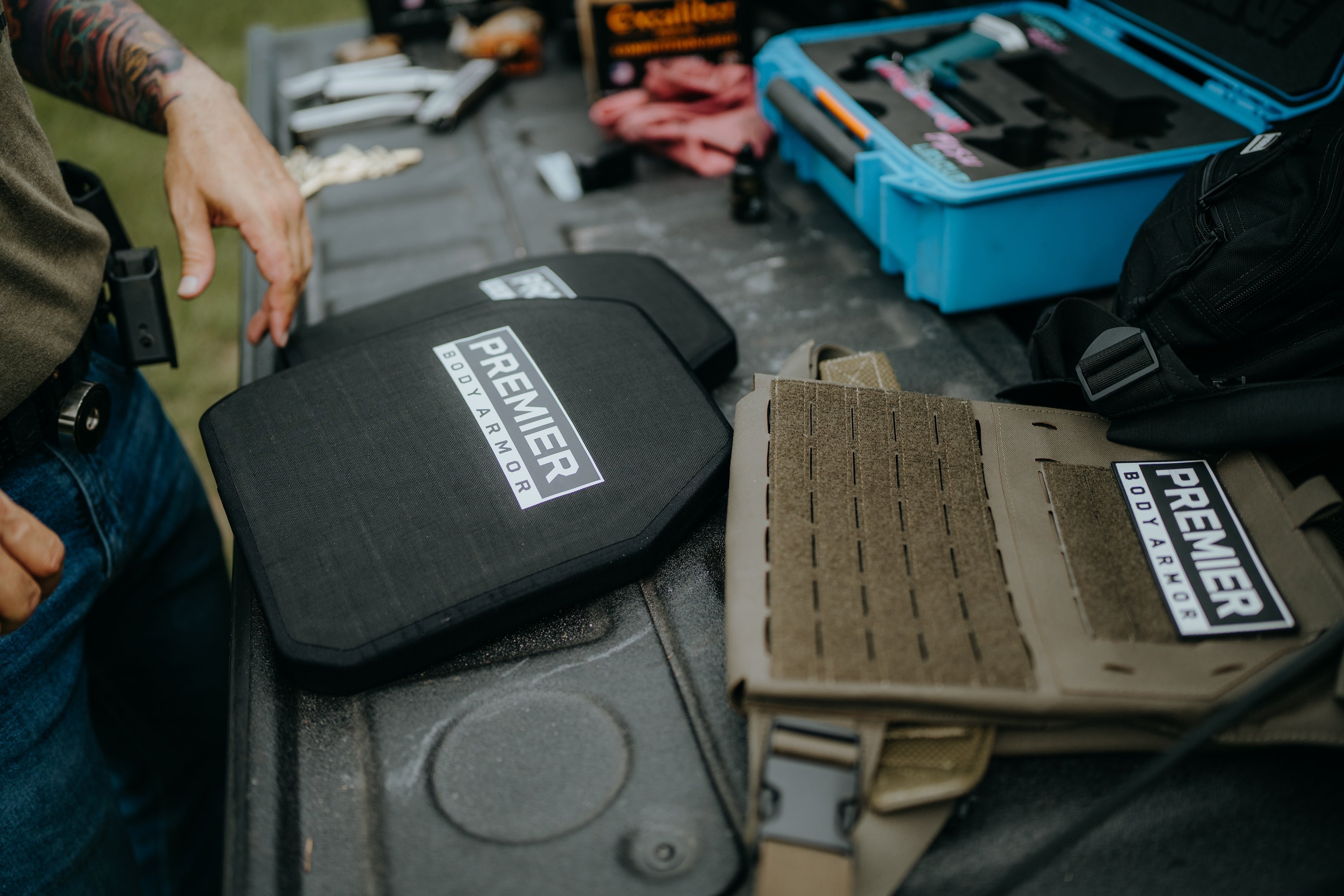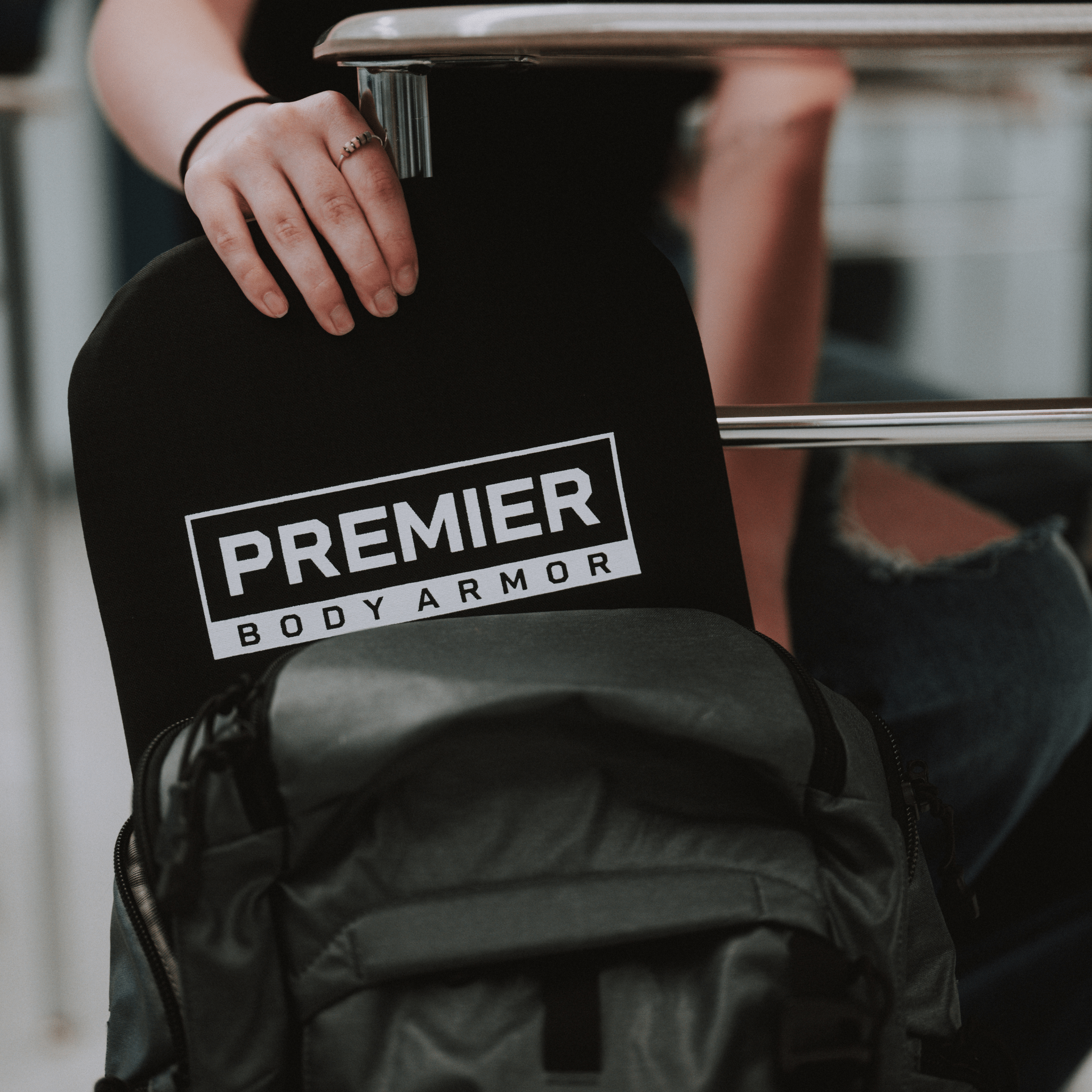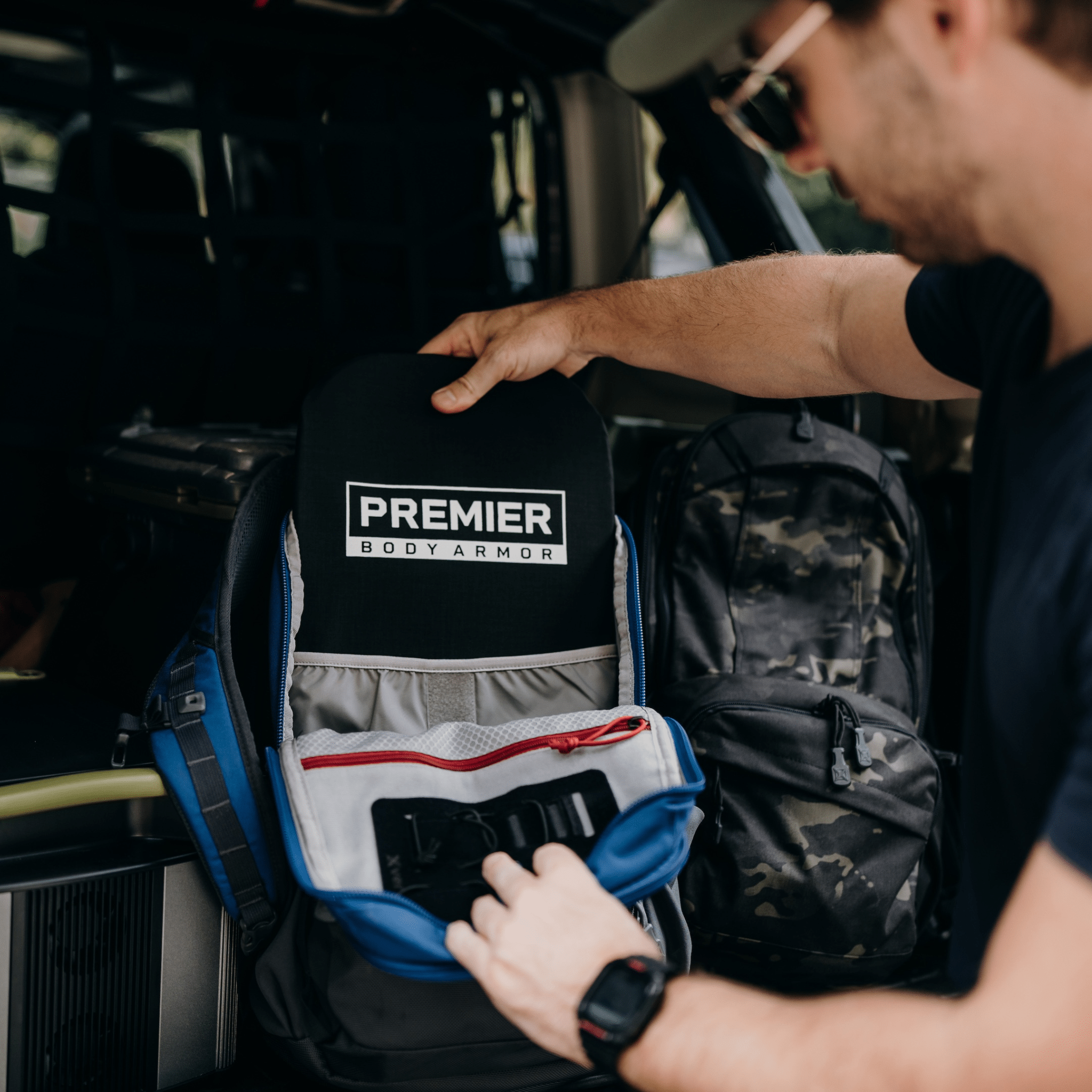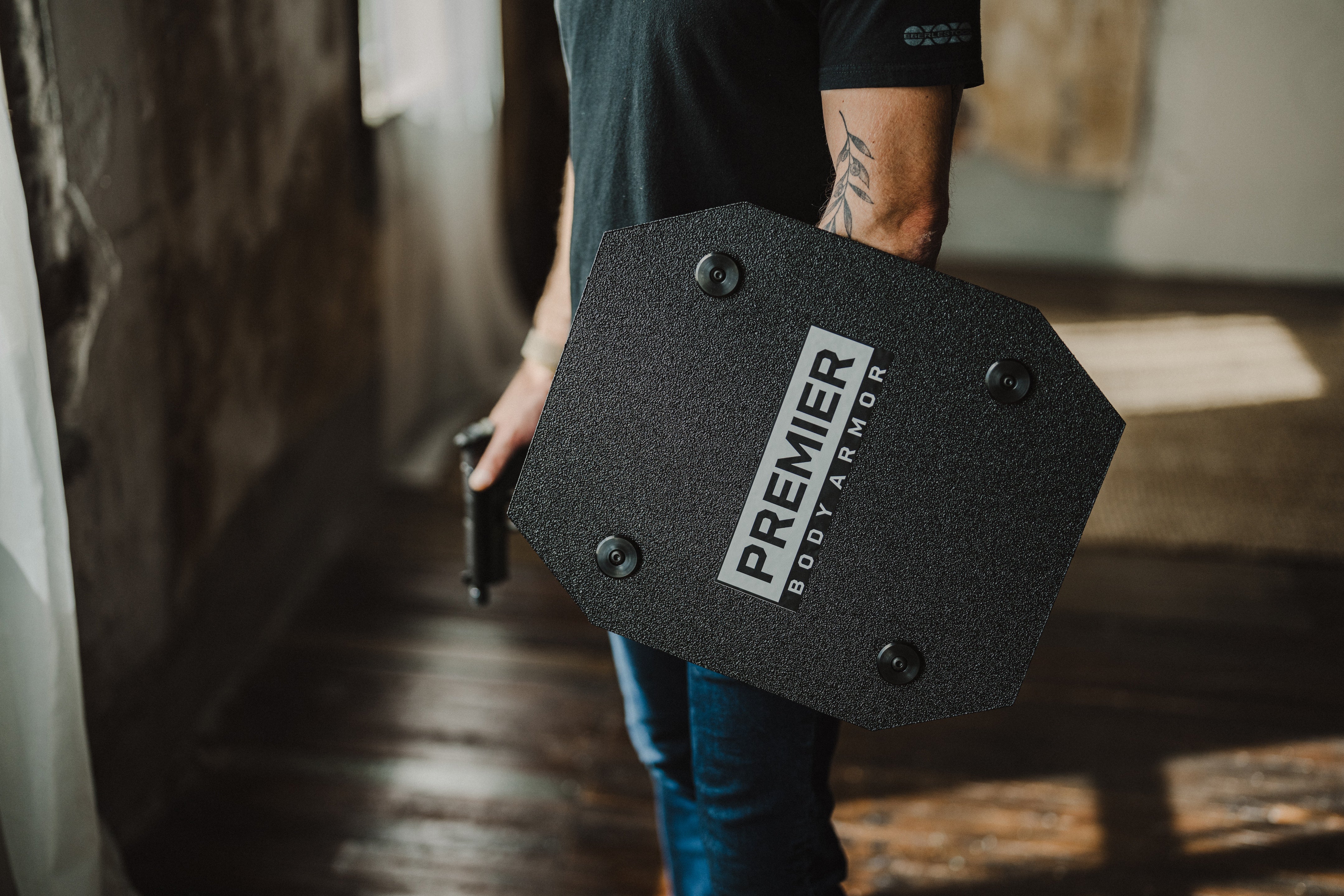Thinking About Buying Body Armor?
What you should consider when buying body armor
Buying Body Armor is a lot like Hiring a Bodyguard…
When you hire a security officer there are a few things to consider.
- What’s their background?
- Are they certified and licensed?
- How long have they protected others?
- Have they been successful?
To say the least, you would put some thought into who’s got your back. You're putting your safety in someone else's hands, and you want to feel confident in their skills. What you wouldn’t do is pick the first person you see in a dark suit and sunglasses, but we do this all the time with products we buy (and books we read). We choose the first website that pops up in our search engine or on our Instagram advertisements. Throw 4.5 stars in the ring and we are sold. A ravioli maker and bacon scented candle are one thing, but we’re talking about YOUR safety. When you make the decision to purchase bulletproof gear for yourself or your family, there are a few things you should consider:
- Where was it made?
- What material is it made of?
- What are the conditions of the place where it was made?
- What certifications does the product have?
- How easy is the company to work with?
Let's break this down into why these things matter for your ballistic protection.
Where is body armor made?
Body armor, just like any product, can be made domestically or imported from another country. When it comes to your personal protection, it's important to know why this is important. To keep costs down, many manufacturers us imported fibers or target-grade steel for their body armor. If a company sells product manufactured overseas, it removes the oversight and makes monitoring the production extremely difficult, if not impossible. This loss of control means a breakdown in a machine, for example, could go unnoticed, resulting in a sub-par product.
At Premier Body Armor, Made in the USA isn't just a tagline. It's our promise that we are only using the highest quality material to create your product. Not only are our products made in our Miami factory, but they are Berry Compliant, which means the domestically sourced raw materials used in our body armor are also 100% Made in the USA.

What material is used in body armor?
Your ballistic protection can be made with a variety of material, many times depending on the level of protection you're looking for. Soft body armor is typically made with layers of fabric, which uses tightly woven fibers that create an extremely strong, yet lightweight material. For example, Premier's backpack panels are constructed with a para-aramid ballistic core with a CORDURA® outer shell to create a flexible, lightweight and extremely thin insert with Level IIIA protection.
When it comes to hard armor, bulletproof plates can be made of materials like steel, ceramic, and polyethylene. While steel body armor may be cheaper, it's a very heavy material, which can be cumbersome and uncomfortable to wear. When you consider the hard armor inserts combined with a rigged out plate carrier, you could be looking at 10+ pounds. This is why many companies have transitioned to using polyethylene. Premier, specifically, uses an ultra-high-molecular-weight polyethylene (UHMWPE) in the construction of our Level III+ rifle-rated plates, providing a higher level of protection in a lightweight solution.
What certifications does the product have?
The National Institute of Justice (NIJ)
has set standards for evaluating body armor. Certification standards provide different levels of protection, so make sure to choose the right level for your needs. Without getting into all of the the specific ammunition each standard protects against, here are a few general notes:
- There are 5 protection levels; IIA, II, IIIA, III, and IV.
- To meet the standard, the body armor must not allow the rounds associated with each level to pass through or exceed a certain amount of back force deformation.
- Tests are done on both new and "conditioned" product to more accurate represent the body armor in different stages of wear.
- Level IIA, the lowest level, protects against standard 9mm & .40SW pistols with off-the-shelf ammunition.
- Level II protects against military-issued 9mm pistols and law enforcement (LE) .357 Magnum revolvers.
- Level IIIA is your most common level for backpack inserts and most soft armor bulletproof vests. This level protects against .357 Sig and .44 Magnum pistols
- Level III is where your rifle-rated plates come into play, with protection against NATO .308 battle rifles. You will likely also see Level III+ products. The + is not given by the NIJ and can mean different things from different companies. For example, Premier's Stratis Level III+ plates have been "Special Threat Tested" by an independent lab to exceed the standard.
- Level IV, the highest level, will protect against armor piercing rifle rounds like 30-06 Armored Piercing.
*keep in mind descriptions of the levels above are not exhaustive of the type of rounds or firearms each level protects against. We recommend visiting the NIJ's website to read the full standard descriptions before deciding which level is best for you.
When purchasing body armor, you should first consider the threat level you are trying to protect against. For most standard civilian use, level IIIA is sufficient.
How easy is the company to work with?
Let's face it, you don't want the process of purchasing body armor to be frustrating, and you certainly don't want any confusion. Transparency and reliability are important when it comes to products that could save your life. Are they willing to share where their products are manufactured and what materials they are constructed with? If you contact customer service, are you getting a real human who can be informative and answer your questions, guiding you on correct sizing and which product would be best based on your needs and budget? Does the company have experience, and the customer reviews to support it? All of these factors are important when making a decision about body armor.
At Premier, we have 20 years of experience creating armor for tactical vehicles, which translated into the law enforcement and the security sector. With this knowledge and experience, we've developed armor solutions with civilian situations in mind. From our bulletproof backpack inserts for school to tactical vests and plate carriers, each product is thoughtfully designed.
As part of our warranty, we also have an incident guarantee. If your Premier Body Armor vest or panel saves your life, we will replace it for free, as long as an official police report of the incident is provided. You can learn more about our warranties and policies on our website.
Still not convinced?
Here’s the rundown on Premier Body Armor’s Products:
- Our products are 100% MADE IN THE USA (Miami to be specific).
- Our materials (Kevlar®, CORDURA®) are of the highest quality and come from trusted and respected US manufacturers.
- Our products are tested to meet the NIJ (National Institute of Justice) ballistic standards.
- Our body armor has been reviewed time and time again by real customers.
- We have 20 years of experience creating armor for tactical vehicles under our belt. We led the industry with top-notch products.
- The Premier Body Armor family is available and eager to answer any questions or concerns you may have. You won't interact with an automation, but will talk with a real, knowledgeable person.
So what's next? When you decide it's time to purchase body armor (or hire a bodyguard), take the time to dig a little deeper, because YOUR safety matters.











Leave a comment